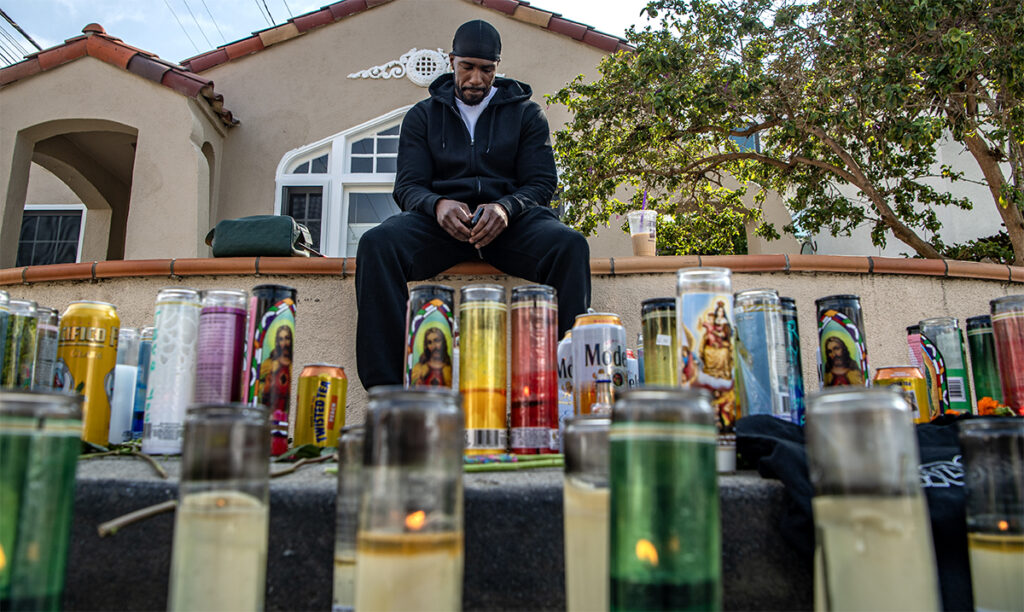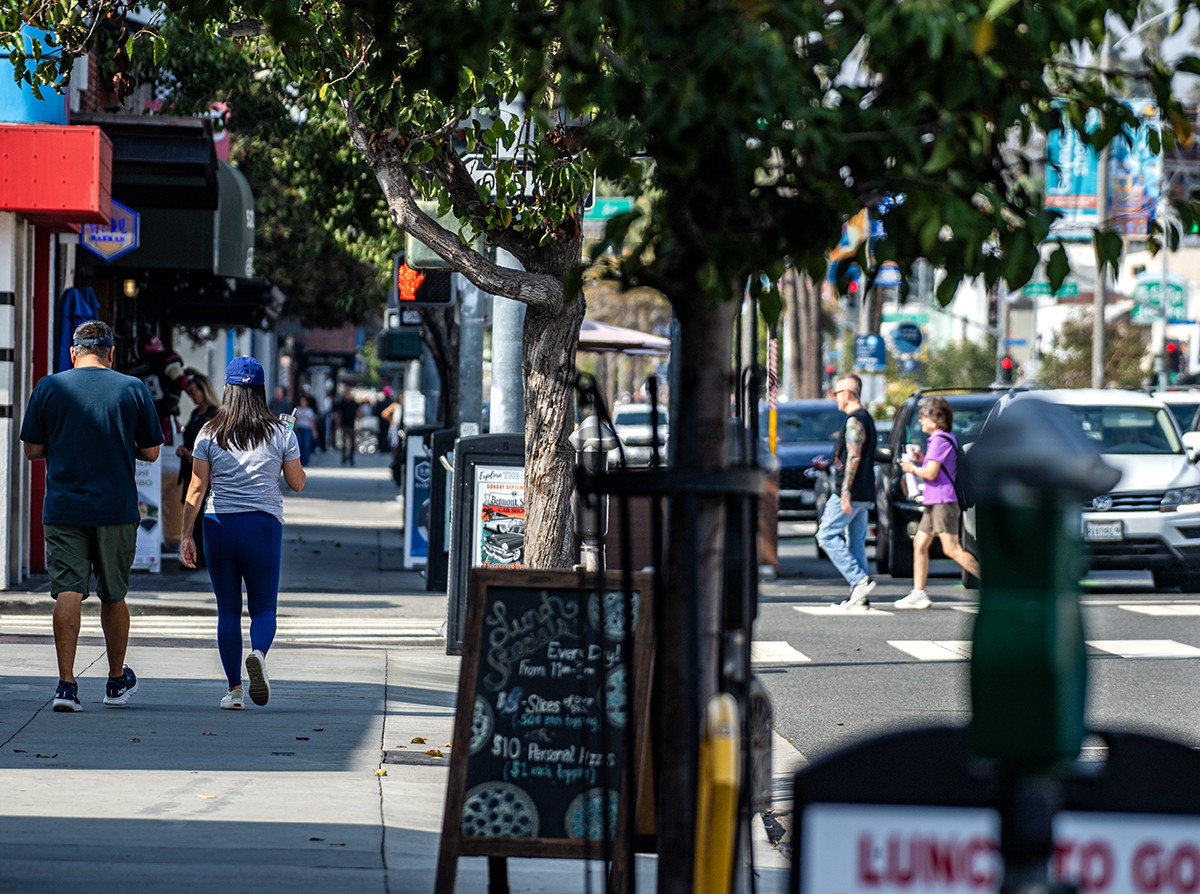Long Beach will look for ways to boost police presence in Belmont Shore and better regulate alcohol-sellers citywide, but officials will not seek to impose a yearlong midnight curfew on Second Street bars.
The decision came after a lengthy discussion at a City Council meeting Tuesday night, where Belmont Shore residents said something must be done about intoxicated, unruly crowds that spill over into their neighborhood.
In the past two years, resident Mike Anderson said, a drunk driver crashed through the brick wall guarding his front yard, and both of his adult children had their parked cars damaged by hit-and-run drivers.
In another case, Anderson said he walked out to a car parked in front of his house that was blaring music, and when he asked the two men in the car if they could lower the volume, one flashed a gun and told Anderson to mind his own business.
He was one of more than 20 neighbors and business owners who demanded action from the City Council. The push for a crackdown came after the killing of 32-year-old Jeremy Spears, who police said was in an altercation at a bar before his death. It was the third killing in two years on or near Second Street.

In response, the area’s City Councilmember, Kristina Duggan, proposed exploring a temporary midnight curfew for bars, boosting DUI enforcement, studying the cost of reestablishing a Belmont Shore police substation, and targeting public drinking and street vending, which she said encourages people to linger after last call.
Duggan said she was on Second Street from 11 p.m. to 1 a.m. last Friday and saw “at least 20” people with open alcohol containers. She pressed Long Beach Police Chief Wally Hebeish on why his officers didn’t cite people for public drinking that night.
Hebeish promised to look into it, but said officers cite at their own discretion.
Duggan said the widespread pubic drinking, unregulated street vending and prevalence of people blaring loud music have led to “unmanaged crowds of intoxicated people in public spaces for extended periods, creating opportunities for conflict.”
She proposed a yearlong curfew for any businesses that sell alcohol along Second Street while the city works out a longer-term plan, but she agreed to scrap that idea when it received pushback. City staff, she said, told her it would take months to implement, and several City Council members said any plan needed to apply citywide, not just on Second Street.
“You’re right — and your residents have shared here — Belmont shore is a special place, but the truth is our entire city is also a special place,” District 8 Councilmember Tunua Thrash-Ntuk said.
She said gun violence was not isolated to Belmont Shore, pointing out that there have been 11 homicides in the city’s northern police division this year compared to one in its eastern division.
“Our response to this can’t be piecemeal,” she said. “We can not be siloed in how we respond.”
Ultimately, the City Council voted unanimously, directing City Manager Tom Modica to report back to the City Council in 45 days on the feasibility of increased DUI patrols, adding more police officers during high-traffic hours and increased enforcement against public drinking and unpermitted street vendors.
Modica will also return in 90 days with the findings of how the city can better regulate alcohol-related establishments and smoke shops citywide.
At Tuesday’s meeting, Duggan said she was “disappointed” by the changes; she hoped to focus on the specific issues along Second Street, which presents a unique regulatory challenge because many of its longstanding bars are grandfathered in under old rules that give them more leeway.
Meanwhile, the four bars in Belmont Shore that currently stay open until 2 a.m. — Shannon’s Bayshore Saloon, Dogz Bar & Grill, Legends Restaurant & Sports Bar and Panama Joe’s — have agreed to voluntarily close each night at midnight.
The bars plan to resume “normal operations” after Dec. 7, said John Edmond, a spokesman hired by the bars. Their owners are exploring implementing universal safety measures and staggered closing times to mitigate some of the safety concerns, Edmond said.

